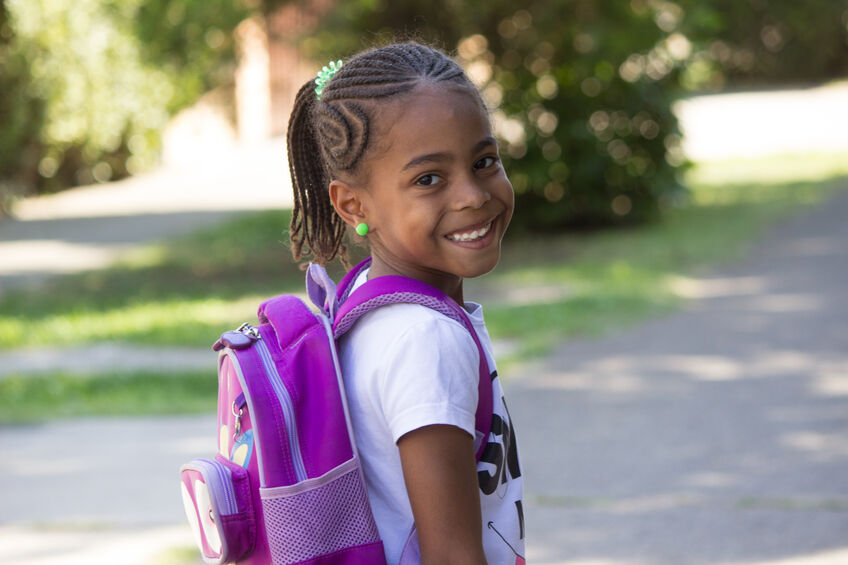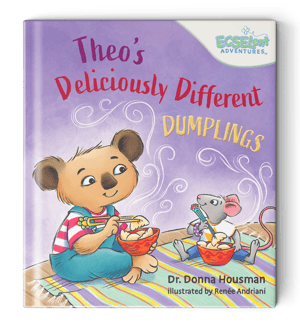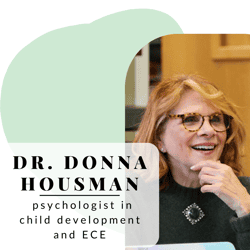
Welcome back to the final chapter in our 4-part series about helping children to unpack the emotional backpacks they carry with them each and every day.
Throughout this series, we have chronicled the story of our friend Annie, who — as we do with all of the children in our classroom — we have helped to lessen the weight of her emotional backpack by teaching her to identify, understand, and appropriately express her many big feelings and emotions. All of these skills will help every child better navigate how to manage their feelings — an invaluable skill they can carry with them the rest of their lives.
My feelings are out of control and I need help.
We’ve all experienced moments, days, even long stretches of time when our feelings are so overwhelming that we feel out of control, and at times, unable to regain control.
As a child, this is even more difficult.
Even if children are able to identify their feelings and communicate them, they may still need support for when these feelings bubble over or get too intense.
Emotional regulation, the ability to prevent emotions from getting out of control and bubbling over, is such an important skill for children to learn and keep with them as they continue to navigate life’s ups and downs.
can help children become more present with their feelings and begin the process of calming down, but they need your support along the way.

Let’s circle back once more to our friend, Annie.
Through our combined years of teaching young children, we have learned some valuable information — regulation isn’t one-size-fits-all. Just like every child is unique and learns in their own way, each child needs different strategies to help them cope with and manage their heightened emotions.
Some children may need a lot of time, space, and support.
Others may need to move their bodies, or focus on something calming to help them.
Annie’s regulation strategies were definitely not one-size-fits-all, but rather changed daily depending on the person and the moment.
With a great deal of patience and time, we learned that the key to helping Annie begin to regulate her heightened feelings was all about trust — creating a bond with an individual (or individuals) that made her feel safe.
We found that drawing a picture with her mom at drop-off helped Annie feel more ready to transition into the school day, even if she was still feeling a little sad about saying goodbye. With dad, it was not drawing, but reading together that helped Annie cope with her feelings of sadness about saying goodbye.
 Books are a great way to help children talk about emotions or experience out of the moment. We made sure to always have Annie’s favorite book, in our library center for days when dad dropped her off at school. But, during the school day, drawing a picture and reading a book were not strategies that helped Annie to calm down with her teachers. The ECSELent Adventures book series comes with a guide in the back to help us discuss emotions with Annie.
Books are a great way to help children talk about emotions or experience out of the moment. We made sure to always have Annie’s favorite book, in our library center for days when dad dropped her off at school. But, during the school day, drawing a picture and reading a book were not strategies that helped Annie to calm down with her teachers. The ECSELent Adventures book series comes with a guide in the back to help us discuss emotions with Annie.
We needed to be creative and think of our own ideas for a regulation routine so Annie could trust that we were there to help her become the boss of her feelings in our own ways.
We each tried different approaches.

For Ms. Emily, this meant taking time for silly yoga stretches, like dinosaur yoga, on the meeting rug. Tip: theming regulation activities after something kids love like dinosaurs, sea animals 🐧, or robots 🤖 are great ways to keep them engaged.
 For Ms. Lauren, this looked like finding a begin to Calm Down Bottle in the CalmDown Corner and counting how many seconds until all the glitter fell to the bottom.
For Ms. Lauren, this looked like finding a begin to Calm Down Bottle in the CalmDown Corner and counting how many seconds until all the glitter fell to the bottom.
But what this meant for Annie, was that she had options. These options provided Annie with security that regardless of the challenge, she has a set of tools (and a set of people) that can help her.
It can be scary and overwhelming for any child who experiences feelings that are out of control, and we know it can also feel overwhelming as adults to see children melt down because of their heightened emotions.
What they need most in those moments is an anchor ⚓— someone and something to trust and support them, to let them know: it’s okay, I’m here, and big feelings won’t last forever. Providing children with those anchors is yet another thing we can help them unpack from their backpack.
Speaking of which, let’s take a look in that backpack now that we have helped unpack a great deal of what children carry with them. What have we made room for?
When children are able to identify, understand, express, and manage their many emotions and feelings, their rapidly developing brains are freed up with space to learn important information and focus. They will be more able to attend to tasks, listen to others, think critically and creatively, problem-solve, and learn about new information, perspectives, and differences.
When children’s feelings are appropriately supported and they have the tools they need to manage those feelings, there is plenty of breathing room and space in their backpacks for discovery, creativity, imagination, and energy to just be silly and have fun playing with friends — all of which are essential for the healthy mental and emotional well-being of children.
By guiding children through the building blocks of emotional intelligence — learning how to identify, understand, express, and manage emotions — we can help to lessen the weight of the many things children carry around on their backs with them each day. When we do, they will have a greater capacity to better handle anything that life throws at them even in the heat of the moment, and most importantly, to just be kids.
 "When children have the right kinds of tools to manage their emotions, including the intense emotions like stress and anxiety, they are much better able to perform important skills such as listening and concentrating, solving problems, and resolving conflict.”
"When children have the right kinds of tools to manage their emotions, including the intense emotions like stress and anxiety, they are much better able to perform important skills such as listening and concentrating, solving problems, and resolving conflict.”
These Posts on Understanding Emotions
Housman Institute, LLC
831 Beacon Street, Suite 407
Newton, MA 02459
info@housmaninstitute.org
(508)379-3012
Explore
Our Products
Legal
Connect
Contact
Join our Mailing List!
Subscribe to receive our newsletter, latest blogs, and ECSEL resources.
We respect and value your privacy.
No Comments Yet
Let us know what you think